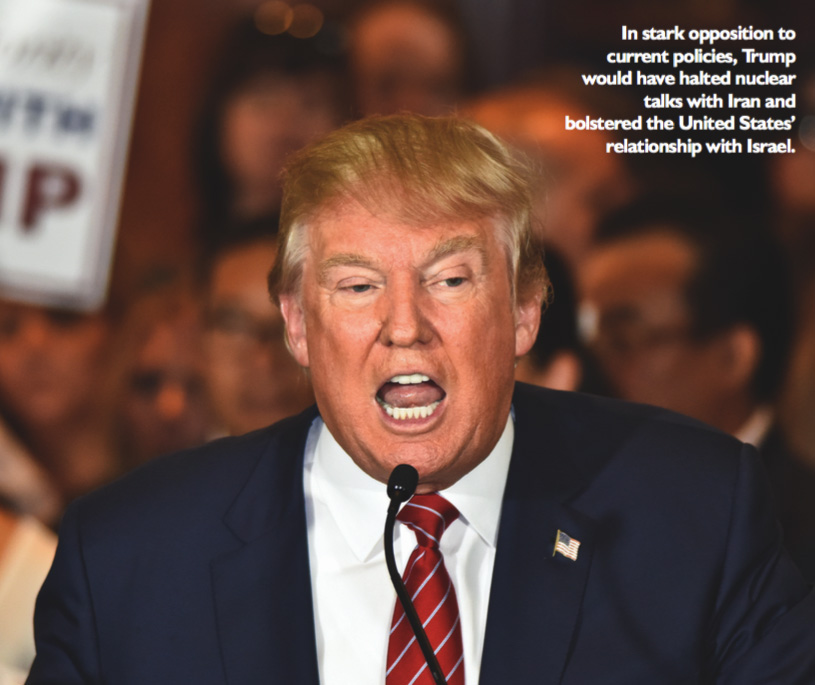
National Security
The Bible tells us how to treat our enemies: “Beloved, never avenge yourselves, but leave it to the wrath of God, for it is written, ‘Vengeance is mine, I will repay, says the Lord’” (Romans 12:19). BUT it also supports the government’s authority in executing the law and delivering God’s wrath. “Let every person be subject to the governing authorities. For there is no authority except from God, and those that exist have been instituted by God. Therefore, whoever resists the authorities resists what God has appointed, and those who resist will incur judgment [...] But if you do wrong, be afraid, for he does not bear the sword in vain. For he is the servant of God, an avenger who carries out God's wrath on the wrongdoer” (Romans 13:1-4). When people or groups break laws or threaten a nation’s safety, there are God-approved consequences.
Related Scriptures: Leviticus 19:18; Deuteronomy 32:35; Psalm 37:1-3, 37:8; Proverbs 21:15; Ecclesiastes 3:8; Nahum 1:2-3; Matthew 5:38-45, 6:15, 10:28, 24:6, 26:52-53; John 15:13; Romans 12:17-21, 13:1-5; Hebrews 10:30; James 5:16
Bush: Bush has generally proposed defeating the Islamic State by sending Kurdish forces more weapons and utilizing American ground forces in advisory roles. However, after the 2015 tragedy in Paris, he said, “We should declare war and harness all of the power that the United States can bring to bear [...] to take out ISIS.” His ultimate goal would be to develop a comprehensive plan that also outlines future measures. He would strengthen the military because he views it as an essential element in international leadership. Like many other candidates, he remains suspicious of Iran and would cancel the nuclear deal entirely. Along those lines, he would also recover relations with Israel and its Prime Minister, Benjamin Netanyahu. Although many candidates agree that Russia’s antics are problematic, Bush has considered sending troops to the affected regions. Grade: A+
Carson: Carson emphasizes the United States’ obligation to provide ethical world leadership and to recover its ties with Israel. He expressed dismay that our leaders have concerned themselves with “politically correct wars,” noting that political correctness has no place in war. Carson is also against reductions in military preparedness and spending. He would give the military resources to effectively destroy the Islamic militant group in Syria. Grade: A
Cruz: Cruz believes that the United States has faltered in its role as a world leader. He says that this weakness has invited enemies to challenge America’s power. He expects to take a much stronger approach to foreign policy, and he unapologetically supports freedom. He was one of the most vocal opponents of the Iran nuclear deal. He views arming Kurdish forces in Syria as the most viable option for defeating Islamic militants. However, he has noted that he would deploy armed forces if initial strategies were ineffective. He also introduced a congressional measure to block American Islamic militants from returning to the United States. Grade: A

Fiorina: Fiorina believes that complications in the Middle East have resulted from President Obama’s confusion between ending war and securing peace. She views these as separate goals that require unique strategies. She is also concerned that ally relations have been weakened by inconsistencies between the United States’ actions and intentions. In an effort to repair these relations, she supported ending nuclear talks with Iran. Fiorina would consider future nuclear talks with the implementation of more inspections, verifications, and compliance measures. She would also focus on improving intelligence efforts to prevent future terrorist attacks (with an emphasis on improved communication between agencies). Like many other candidates, she would continue to combat Islamic militants in Syria by supplying more weapons to Kurdish forces. Grade: B
Rubio: One of Rubio’s top priorities would be modernizing our armed forces. He would take a much stronger approach toward the threat in Syria. The recent terror attacks in Paris led him to call for the invocation of Article 5 of the NATO agreement. He supported ending nuclear talks with Iran and increasing sanctions on the country. His experience on the congressional Committee on Foreign Relations may allow him to offer a comprehensive view of foreign policy. He emphasized the need to focus on relations with other countries at The Summit of the Americas, and he strongly opposed President Obama’s recent ties with the dictatorial Cuban regime. Grade: A+
Trump: In stark opposition to current policies, Trump would have halted nuclear talks with Iran and bolstered the United States’ relationship with Israel. Trump said, “I love America. And when you love something, you protect it passionately — fiercely, even.” With that in mind, Trump believes that foreign policy should put American interests first, maximize military preparedness, strengthen ally ties (while distancing enemies), seek preemptive action, and pursue technological innovation. Trump would send a limited number of combat troops to strengthen efforts on the ground in Syria. Grade: A








